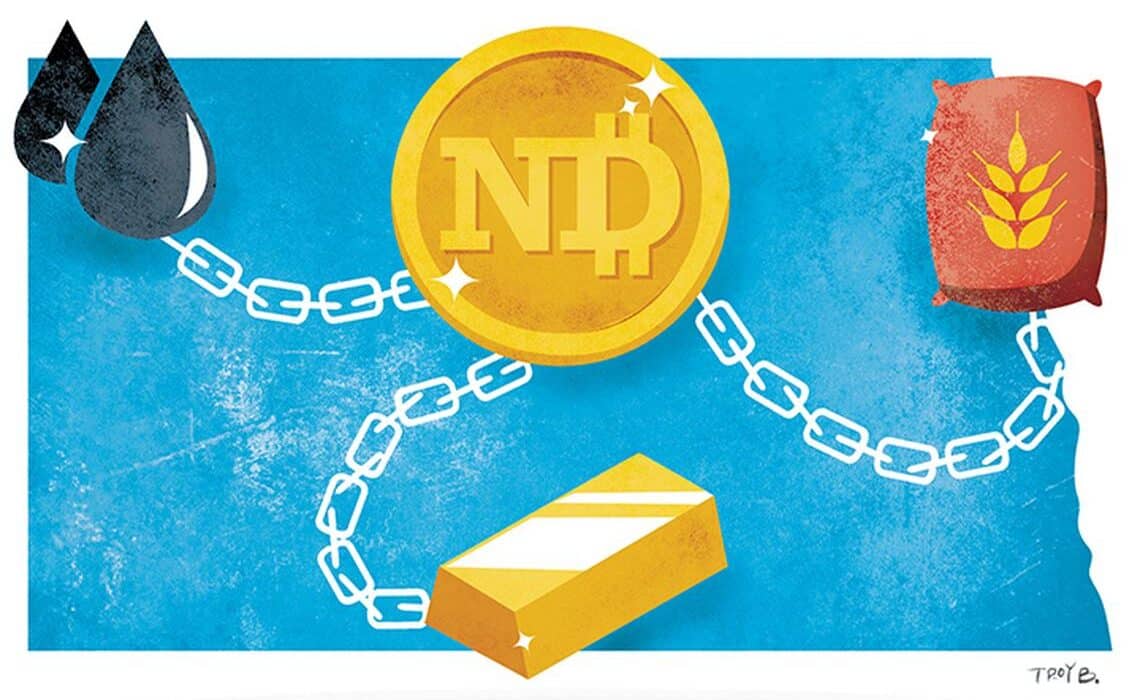The COVID-19 pandemic has created widespread economic and financial turmoil, prompting governments worldwide to seek innovative solutions. In the U.S., North Dakota is exploring the potential of blockchain technology to enhance financial transparency and improve public services. Representative Nathan Toman believes that blockchain could play a pivotal role in addressing the state’s challenges, offering solutions that range from tracking finances to streamlining taxpayer services.
Blockchain: A Solution for Crisis Management
Representative Toman’s Vision
Nathan Toman’s proposal centers on utilizing blockchain to monitor North Dakota’s finances and provide services to taxpayers. Explaining the rationale behind his initiative, Toman stated:
“What I came up with when I decided to propose the study was ‘How can we track the state of North Dakota’s finances and also provide a service to the taxpayer?'”
This vision highlights blockchain’s potential to create a transparent and efficient financial system that benefits both the state and its residents.
Blockchain Applications in North Dakota
Tracking State Finances
One of the most promising applications of blockchain is its ability to track financial transactions with unparalleled transparency. Blockchain’s decentralized and immutable ledger ensures that all transactions are:
- Accurate: Every entry is verified and validated.
- Traceable: Funds can be monitored in real-time, reducing the risk of fraud or mismanagement.
- Transparent: Public access to records enhances trust in government operations.
Streamlining Public Services
Toman envisions blockchain as a tool to simplify interactions between taxpayers and the state:
- Single Portal Access: Citizens could access multiple services through a unified blockchain-based platform.
- Identity Management: The system would securely link individuals to their records and transactions, eliminating redundancies.
Enhancing Communication and Governance
Inter-Agency Communication
Blockchain can improve communication and coordination between state agencies by:
- Automating Processes: Smart contracts could facilitate seamless data sharing and task execution.
- Reducing Bureaucracy: Eliminating manual intermediaries streamlines workflows.
Budget Tracking
By integrating blockchain into budget management, the state could:
- Monitor Expenditures: Track how funds are allocated and spent.
- Ensure Accountability: Create an auditable trail for all financial activities.
Blockchain’s Self-Governance Capabilities
Decentralized Validation
Blockchain operates on a self-governance model, which means transactions are validated automatically without relying on third-party oversight. Toman explained:
“Since the blockchain network is a self-governance kind of thing, even if it were a private one and not owned by the state government, it would still validate all of those transactions without having to have a third party do it.”
This autonomy reduces costs and increases efficiency, as the system operates independently once properly programmed and tested.
Reliability Through Programming
Toman emphasized the importance of robust programming:
“As long as your programming is sound and it’s all tested and vetted, it runs itself at some point.”
This highlights blockchain’s potential to function as a reliable and secure backbone for financial and administrative processes.
Benefits of Blockchain in Crisis Management
Addressing Financial Challenges
Blockchain can help North Dakota address financial challenges exacerbated by the pandemic by:
- Increasing Revenue Efficiency: Reducing waste and fraud maximizes available funds.
- Improving Public Trust: Transparent systems rebuild confidence in government operations.
Supporting Economic Recovery
The implementation of blockchain technology can spur economic recovery by:
- Encouraging Innovation: Attracting tech investments and startups to North Dakota.
- Boosting Employment: Creating jobs in blockchain development and administration.
Challenges and Considerations
Implementation Costs
Adopting blockchain technology requires significant initial investment in:
- Infrastructure: Developing a robust blockchain network.
- Training: Equipping government employees with the skills to manage and utilize the system.
Data Privacy and Security
Ensuring the security of sensitive data on a blockchain network is paramount. The state must:
- Implement Strong Encryption: Protecting personal and financial information.
- Adhere to Privacy Regulations: Complying with state and federal laws.
Public Adoption
Encouraging citizens to embrace blockchain-based systems may require:
- Education Campaigns: Informing the public about blockchain’s benefits and functionality.
- User-Friendly Interfaces: Designing intuitive systems that simplify access and use.
The Future of Blockchain in North Dakota
Leading by Example
If successfully implemented, North Dakota’s blockchain initiative could serve as a model for other states and countries. By demonstrating blockchain’s potential to enhance governance and transparency, North Dakota could position itself as a leader in technological innovation.
Expanding Applications
Beyond financial tracking and public services, blockchain could be applied to:
- Healthcare: Managing medical records and tracking vaccine distribution.
- Supply Chain: Ensuring the authenticity and safety of goods.
- Elections: Enhancing the security and transparency of voting systems.
Conclusion
As North Dakota explores blockchain technology, Representative Nathan Toman’s initiative highlights the transformative potential of this innovation. By leveraging blockchain for financial transparency and public service delivery, the state can address current challenges and build a foundation for future growth.
The success of this initiative could redefine governance and public administration, making North Dakota a trailblazer in adopting blockchain for societal benefit. As the state moves forward, careful planning, robust programming, and public collaboration will be key to realizing this vision.
Stay tuned for updates on North Dakota’s blockchain journey and its implications for the broader adoption of crypto technology in governance.
To learn more about the innovative startups shaping the future of the crypto industry, explore our article on latest news, where we delve into the most promising ventures and their potential to disrupt traditional industries.
Disclaimer: The information provided is not trading advice, Bitcoinworld.co.in holds no liability for any investments made based on the information provided on this page. We strongly recommend independent research and/or consultation with a qualified professional before making any investment decisions.




